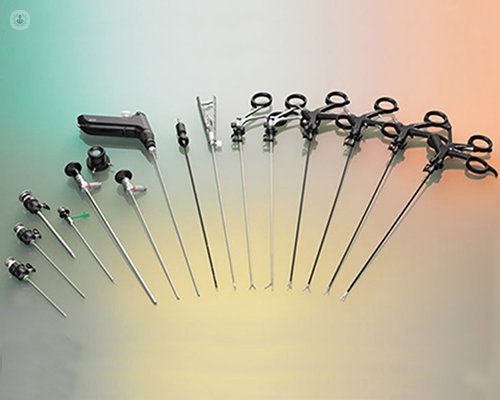Keyhole surgery: advancements in micro laparoscopic surgery
Written by:In this article below, highly experienced general, gastrointestinal, and bariatric surgeon, Mr Ahmed R. Ahmed, details the numerous benefits of micro laparoscopic surgery, whilst also telling us exactly how the surgery is performed.
What is micro laparoscopic surgery?
Microlaparoscopy is one of the latest developments keyhole surgery. The minimally-invasive technique that allows the surgeon to see and operate within the body, without the need for large incisions to be made.
With a standard laparoscope being around 10-12mm in size, a microlaparoscope is less than 3mm. This allows a reduction in the size of the incision, meaning the patient will have a much smaller, and less visible scar.

What are the benefits of micro laparoscopic surgery?
Micro laparoscopic surgery is used on conditions such as hernias, gallbladders, and gastric bands but by making incisions that are so small (2-3 mm) that they are barely visible and often become invisible with time. This surgical technique is the closest we can get to performing scarless surgery. Standard laparoscopic/keyhole surgery utilises incisions often range between 6mm up to 13mm or more. Besides the obvious cosmetic benefit to the patient, the tiny incisions also result in less pain after surgery as well as a reduced risk of developing hernias through these incisions.
A randomised controlled study examining conventional laparoscopic surgery with microlaparoscopic surgery published in the journal JAMA Surgery in 2005 demonstrated reduced early postoperative pain, less late incisional discomfort and a better cosmetic result in the micro-laparoscopic group of patients.
The other advantage of the micro-laparoscopic technique is that unlike SILS (single port incisional laparoscopic surgery) the micro-laparoscopic technique allows the surgeon to perform the surgery in the way he is used to without having to compromise on the angles the instruments are inserted in (which happens in SILS). Most laparoscopic operations can be carried out using this technique, and is the closest we will come to scarless surgery.
To book an appointment with Mr Ahmed R. Ahmed today, simply visit his Top Doctors profile.


